DNC Unity Commission Agrees On Slate Of Historic Reforms
WASHINGTON ― At its final meeting on Friday and Saturday, the Democratic National Committee’s Unity and Reform Commission agreed to a set of dramatic revisions aimed at restoring faith in the presidential nomination process and the management of the DNC.
The 21-member panel, which held its ultimate gathering in a conference room at the Marriott Wardman Park in Washington, D.C., is recommending the effective abolition of some 60 percent of superdelegates to the presidential nominating convention. It has also presented a set of measures designed to increase accessibility to presidential primaries and caucuses, as well as reforms aimed at opening up DNC budgetary and administrative processes to greater scrutiny through, among other things, the creation of an Ombudsmen Council.
The reforms are not yet a done deal, however. The commission’s report now heads to the DNC’s Rules and Bylaws Committee, which will have a 6-month period to amend party rules to enact the reforms, and could theoretically try to dilute the commission’s recommendations (though they would have to run any changes by the commission). The roster of over 400 voting DNC members will also get to vote on the proposals at the full DNC meeting in the fall of 2018.
But the commission’s most adamant reformers, most of whom were appointed by Sen. Bernie Sanders (I-Vt.), characterized the outcome as a major win for the Democratic Party’s disillusioned progressive wing. The acceptance of Sanders surrogates was essential to the commission’s success, since evidence that the DNC had favored Hillary Clinton during the 2016 presidential primary and the anger it inspired among Sanders supporters fueled the creation of the commission.
“I hope that the grassroots [activists] who have felt dismissed and who have lost faith in the party ... understand that they have had warriors on this commission who are completely in line with their values and that we fought and we won a lot to make this party inclusive,” said Nomiki Konst, a Sanders appointee to the commission.
Asked what his message would be for the hardened cynics on the grassroots left, Jim Zogby, president of the Arab American Institute, and another Sanders pick on the commission, declared that he too “went into [the commission] a hardened cynic ― as late as yesterday.”
“I was convinced we weren’t gonna win anything,” he continued. “Overnight there was a sense that we had to come to closure on these, and people were willing to step forward on all of them.”
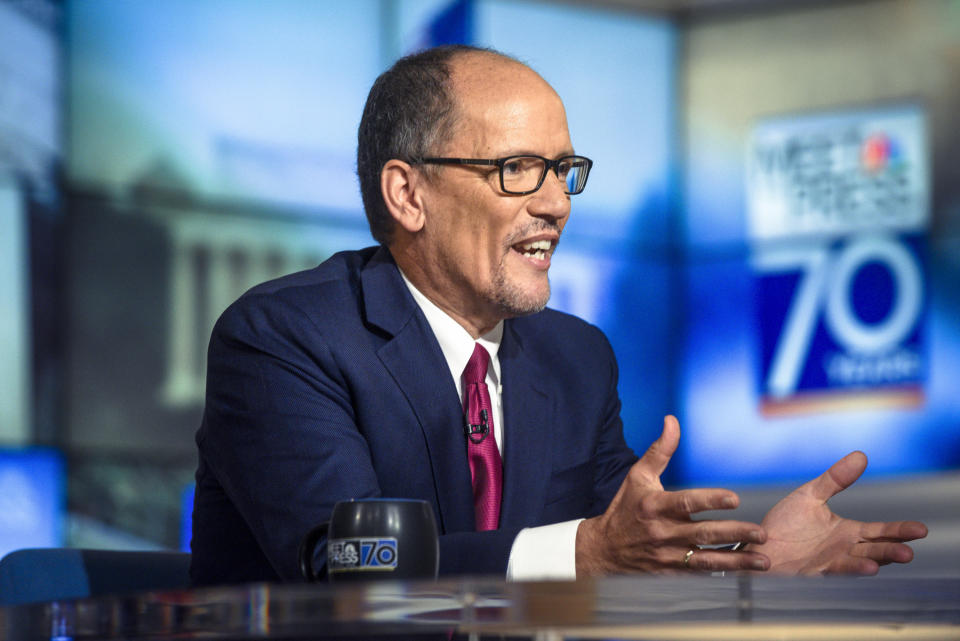
Clinton-backing delegates to the Democratic National Convention in July agreed to the Unity and Reform Commission’s creation in July 2016. It was a compromise gesture to Sanders supporters who had attempted to force the abolition of all superdelegates in a pre-convention meeting of the convention’s rules committee.
The commission, the agreement specified, would be composed of 21 members: 8 chosen by Sanders; 10 by Clinton; and 3 by the new DNC chair.
When former Labor Secretary Tom Perez was elected DNC chair in February, relying almost exclusively on the backing of Clinton supporters, reformers wondered whether the party was really willing to address their concerns. And in April, when Perez announced both his and the Clinton campaign’s appointees to the commission, he did not make clear which members were Clinton’s picks and which were his, fueling some people’s skepticism of the commission’s makeup.
But Sanders’ appointees, which included nationally-recognized loyalists like Our Revolution president Nina Turner, used their public platforms to punch above their numerical weight and keep grassroots pressure on the panel to enact major changes.
And in early November, former interim DNC chair Donna Brazile rocked the political world with a tell-all book about her brief tenure as party leader that revealed the degree to which a cash-strapped DNC had allowed itself to be co-opted by the Clinton campaign. Long before the primary between Clinton and Sanders had ended, the Clinton campaign had won a final say over key DNC decisions, including the hiring of major personnel, according to Brazile.
DNC chair Perez and others disputed some of Brazile’s characterizations, noting that Sanders had access to at least some of the joint-fundraising arrangements Clinton enjoyed. (Former Sanders staffers argued in turn that they were offered nothing that even resembled what Clinton got.)
But in a statement to DNC staff, Perez also reiterated his commitment to following through on the Unity and Reform Commission’s recommendations. And in an op-ed this week with deputy DNC chair Keith Ellison, a Minnesota congressman and Sanders acolyte who narrowly lost to Perez in a close race for the chairmanship, Perez went further, promising additional reforms like a transparent presidential primary debate schedule.
“Donna Brazile’s leadership and her bravery in coming forward with a lot of the problems that people just wanted to gloss over … that definitely paved the way for reform,” said Jane Kleeb, Nebraska Democratic Party chairwoman and Sanders appointee to the commission. “I also think Secretary Clinton and Senator Sanders both spoke to their sides and said ‘Move forward.’”
If the Unity and Reform Commission’s recommendations are adopted by the DNC, as they are widely expected to be, the party’s presidential nominating process will be significantly different in 2020.
The most identifiable change for ordinary politics watchers is likely to be the scaled back role of superdelegates.
Superdelegates are Democratic elected officials and insiders, including DNC members, who are “unpledged,” meaning they are free to vote for a presidential candidate regardless of who primary and caucus voters in their state choose. There is no equivalent to superdelegates in the Republican Party, though critics claim that party incumbents have their own undemocratic ways of exercising influence over the presidential nomination process.
Sanders backers lamented from the start of the 2016 primary that the decision of hundreds of superdelegates to endorse Clinton before Sanders had even entered the race had unfairly jaded the contest’s outcome. Wikileaks’ publication of hacked emails by DNC staffers in June 2016 appeared to validate Sanders partisans’ view that the DNC had at least favored Clinton.
I'm proud of the work of the Unity Reform Commission. Their recommendations would reduce superdelegates by nearly 60%, make primaries & caucuses more accessible, and bring transparency to our party. We haven't seen these types of sweeping reforms in over 30 years.
— Tom Perez (@TomPerez) December 9, 2017
The Unity and Reform Commission members proposed binding all but the highest subset of superdelegates to the choice of Democratic voters in their state, resulting in a reduction of over 60 percent in the number of “unpledged” convention delegates.
Former presidents, former vice presidents, former DNC chairs, as well as sitting members of Congress and sitting governors would retain their superdelegate privileges under the proposal.
In a bid to increase participation in the presidential nominating process and welcome independents, the commission imposed a slew of new requirements on state parties that hold caucuses. Caucuses, party-administered processes that involve multiple ballots and a much larger time commitment, typically draw a much smaller crowd than primaries.
The commission proposal would require state parties to allow voters to register for the first time or switch party affiliation on the same day of the caucus and submit absentee ballots by mail, as well as ensure the use of written ballots to confirm the accuracy of results.
The DNC has less authority over primaries, which are run by state governments. But the commission has issued recommendations that presidential primaries adhere to the same new criteria, and holds out the possibility of penalties for state Democratic parties that do not do everything in their power to adopt those changes.
Although it was not singled out explicitly, the case of New York, which is one of 11 states with closed primaries, weighed heavily on the minds of reformers on the commission. The state requires voters not registered with the Democratic Party to switch affiliations some six months before a party primary, and register for the first time as a Democrat nearly a month beforehand. The strict requirements, critics argue, protect incumbents and other established political figures at the expense of insurgents like Sanders who excite independents.
The Unity and Reform Commission, which formally met on five occasions, was not without its turbulent moments. A key sticking point in the final meeting was how far the commission should go in recommending new accountability mechanisms for the party’s budget, including joint fundraising agreements and contracts with outside vendors and consultants.
Progressive commissioners viewed greater budget transparency as essential, not merely because of what occurred during the 2016 primary, but because of years of fiscal opacity that skeptics argue led to disproportionate funds going to a handful of consulting firms and other expensive contractors.
Zogby, who has been a voting DNC member for over a decade, was fond of reminding people that he had never once seen the DNC’s budget.
On Friday, moderate members of the commission signaled that they would vote down a proposal to create an Ombudsmen Council to serve as a kind of inspector general and complaints board for the DNC, as well as provisions empowering the DNC’s Budget and Finance Committee to exercise greater oversight over financial decisions. They worried about depriving DNC staff of discretion over professional decisions, and argued that members of the Budget and Finance Committee needed to have appropriate financial expertise.
In a key flashpoint that went viral in progressive circles, Nomiki Konst went on an impassioned rant against those who would stand in the way of greater budget transparency.
“We spent a billion dollars [and] lost the easiest presidential race you could possibly imagine,” she declared. “How are you supposed to rebuild the party if you have no idea where that money was spent?”
The commission tabled the proposals until Saturday. On Friday evening and into Saturday morning, commissioners crafted a compromise that ensured the concerns of various sides would be addressed. Konst and Zogby both credited Rep. Marcia Fudge (D-Ohio) and Maryland Democratic National Committeewoman Yvetter Lewis, both of whom were Clinton appointees, for helping bridge the divide.
In the final recommendations, the commission proposed a 7-member Ombudsmen Council that included the elected chairs of the DNC’s 4 regional caucuses.
The Budget and Finance Committee would also include elected DNC members, and all of its members would have to disclose their potential conflicts of interest. Any expenditure of over $100,000 a year to outside vendors or consultants would require committee approval. Its meetings would be open to any member of the DNC, as would the DNC’s budget materials.
“There’s now checks and balances on finances, as well as when problems come up, you now have a place to go if you’re a DNC member to get those solutions,” Kleeb said.
David Huynh, a Clinton appointee to the commissions who worked for Clinton’s campaign, said there was a “lot of give and take between the two sides.”
“We can finally declare that the 2016 presidential nomination is over with,” he said.
Love HuffPost? Become a founding member of HuffPost Plus today.
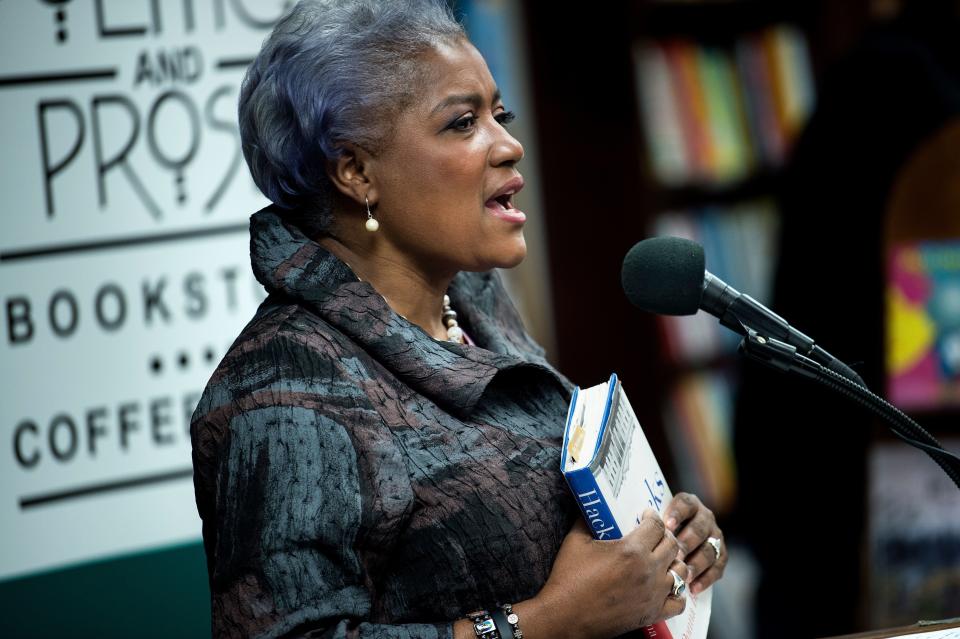
Not all progressive activists are happy with the outcome. Kurt Walters, campaign director of Demand Progress Action, an internet freedom group that spearheaded a Thursday letter from a number of left-leaning organizations admonishing the commission to recommend as sweeping reforms as possible, said in a statement that reducing the number of superdelegates, rather than eliminating all of them, was a “bare minimum step.”
“But it is also not a done deal,” Walters continued, referring to the need for the DNC’s Rules and Bylaws Committee and broader membership to accept the reforms. “The party’s grassroots base will continue to push through every part of this process for the complete end of the voting power of superdelegates. Groups will be watching closely for any sign of backsliding from today’s vote.”
A coalition of left-leaning Democratic Party activists known as the Democratic Autopsy Task Force, which issued its own report on the party’s failings in November, was even more scathing.
“The Unity Reform Commission meetings have been an exercise in modern smoke-filled back rooms without the smoke,” Karen Bernal, chair of the California Democratic Party’s Progressive Caucus said in a statement that focused on lack of communication about commission meetings, including incomplete information about the location of the final gathering.
“With the added ‘party line vote’ of the commission members on proposed reforms ― the Clinton supporters numbering more than the Sanders supporters ― the outcomes overall have been unimpressive to say the least.”
Lucy Flores, a former Nevada State Assemblywoman and Sanders commission appointee, praised the commission recommendations as a major accomplishment but welcomed the skepticism of diehard activists.
“They absolutely should keep up that skepticism because that translates to accountability,” Flores said. “But they should keep an open mind and go into it the same way we did, with a good faith approach.”
Also on HuffPost
Taking Security Seriously
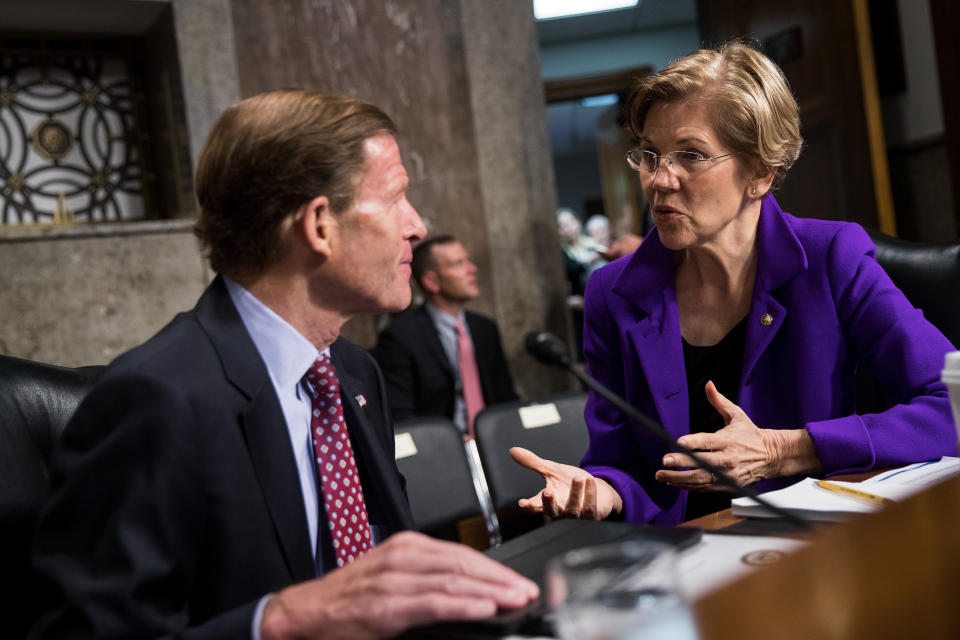
With Liberty And Justice...
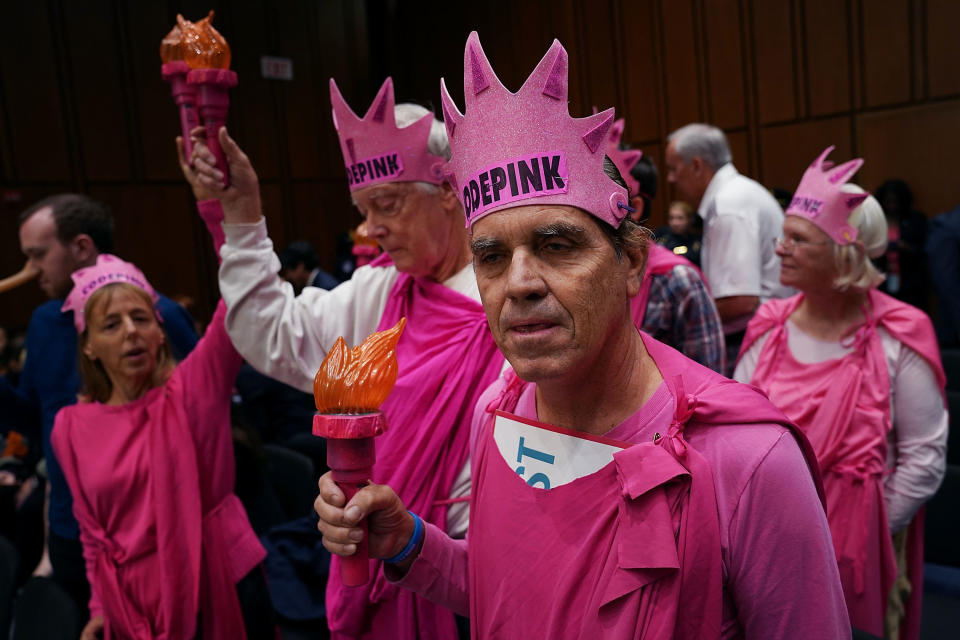
Whispers
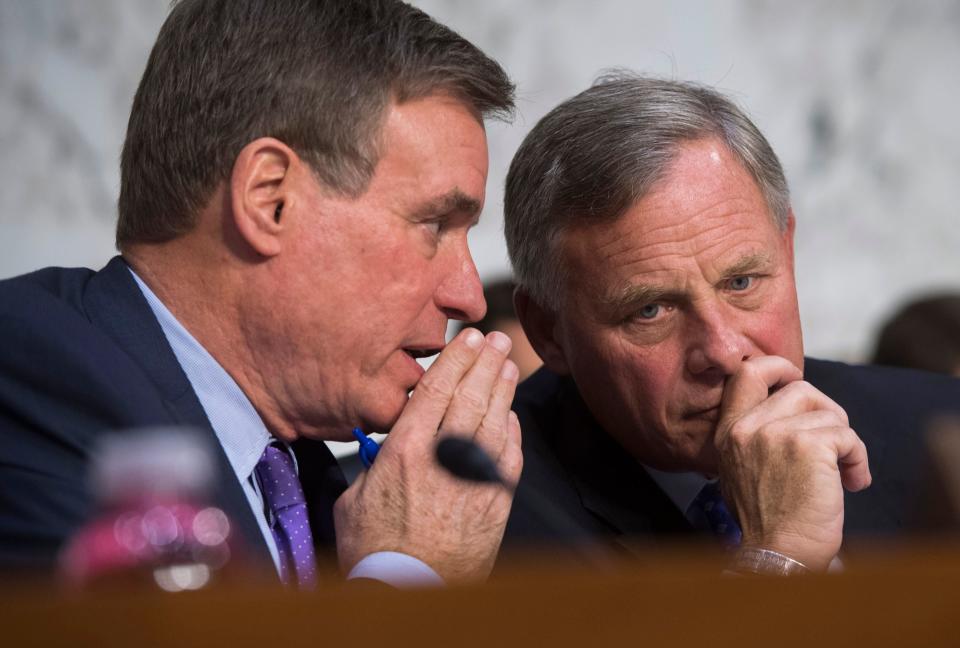
Not Throwing Away His Shot
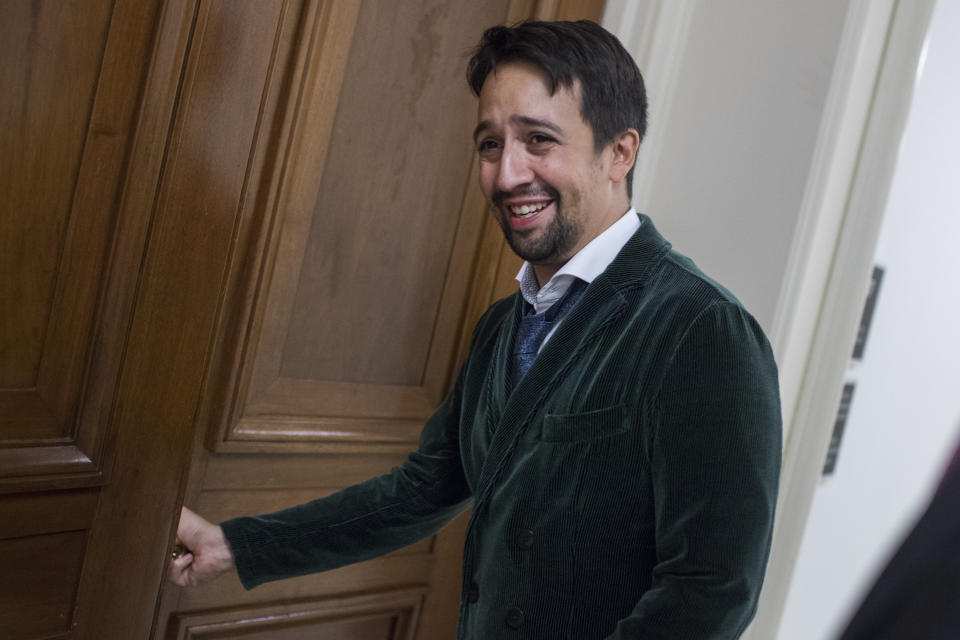
Medicare For All
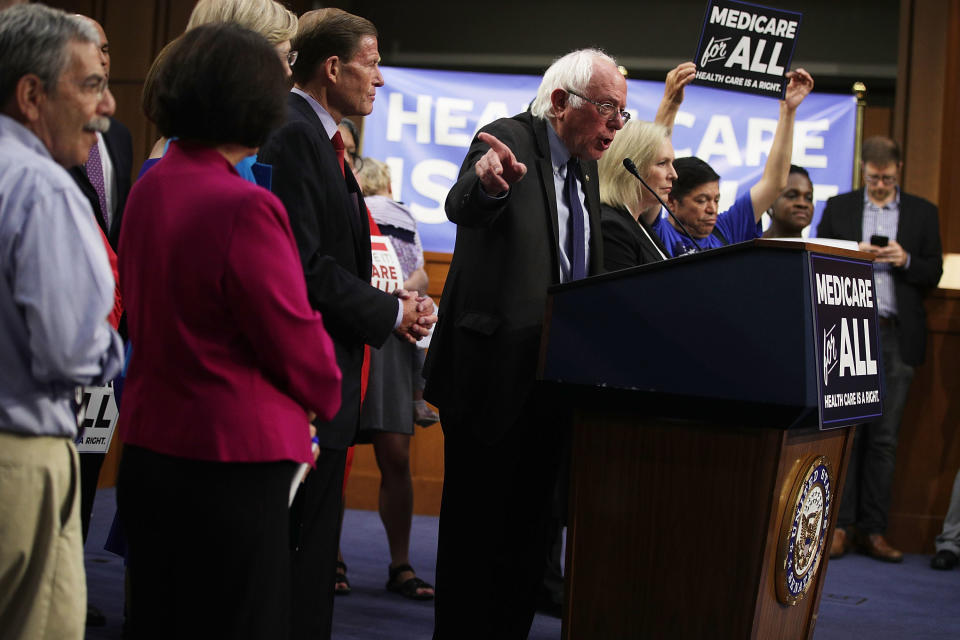
Bernie Bros
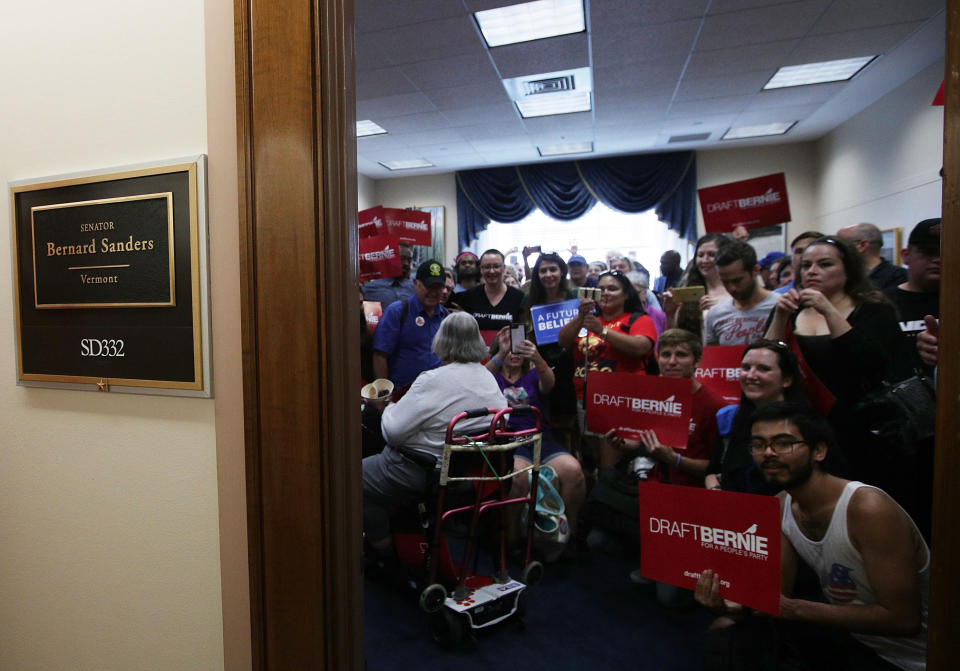
McCain Appearance
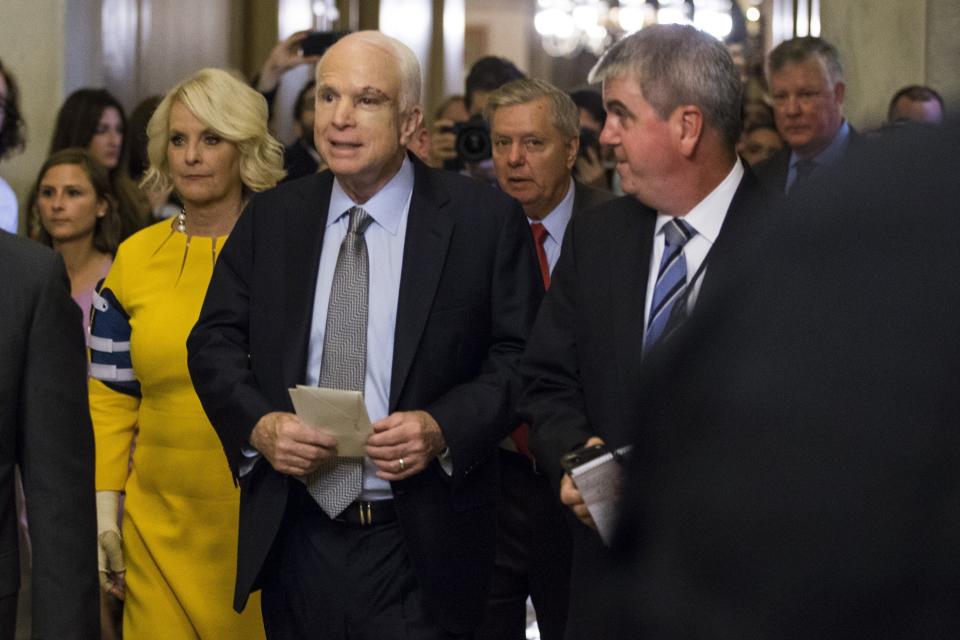
A Narrow Win
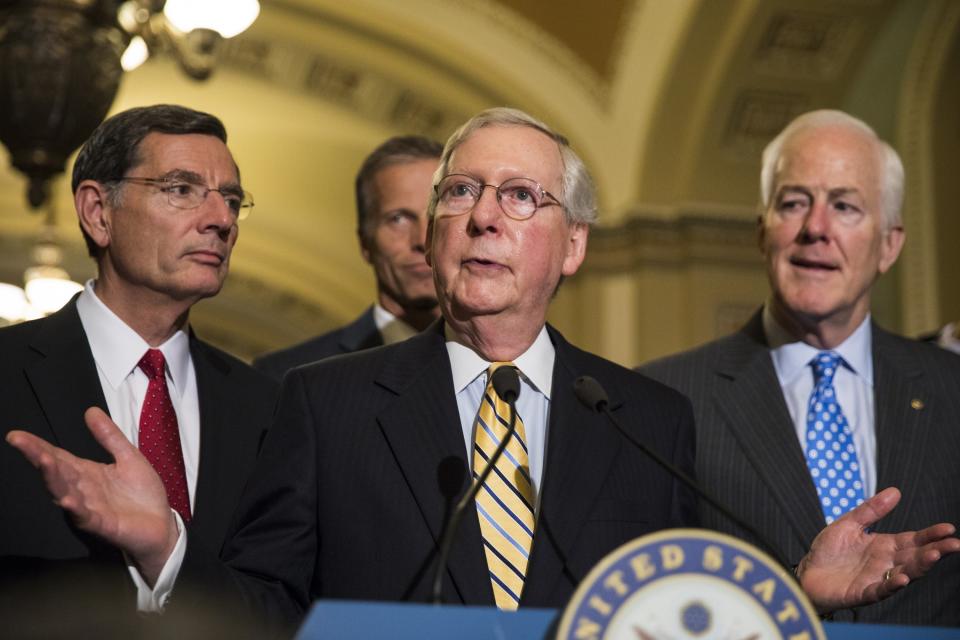
Kushner Questioning
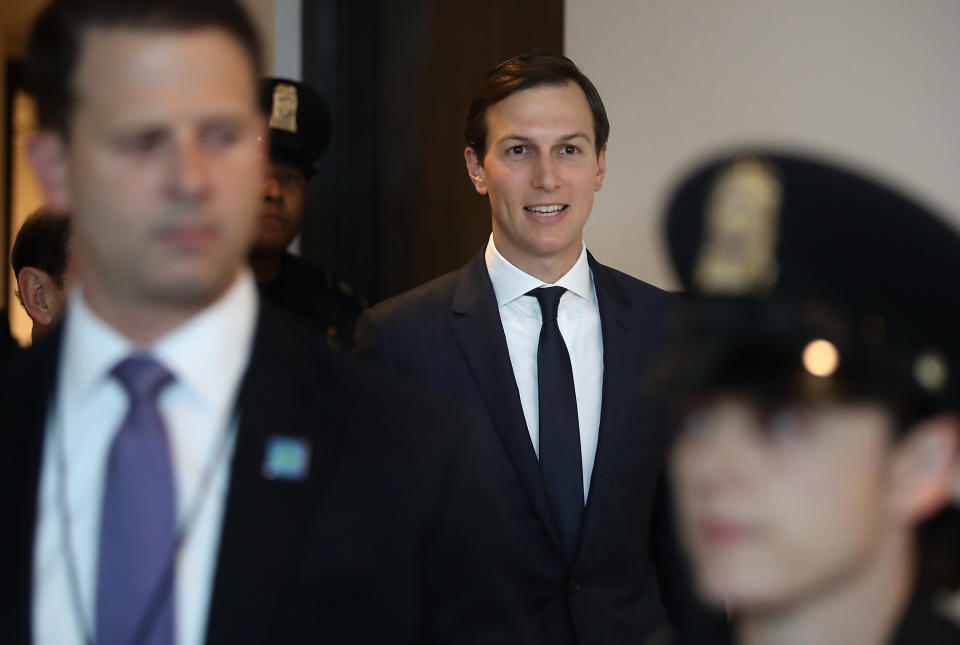
Hot Dogs On The Hill
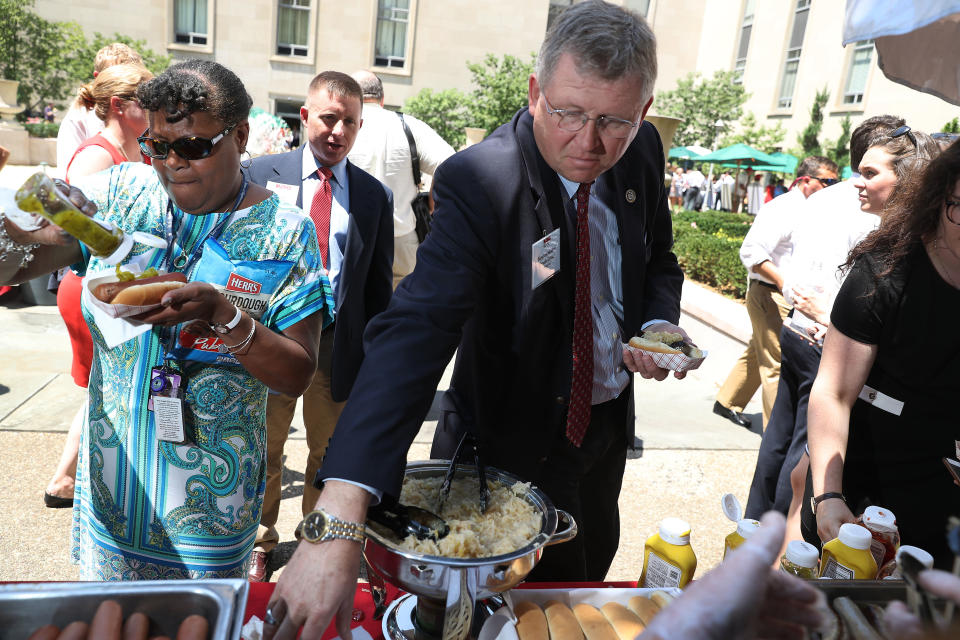
And Their Veggie Counterparts

Poised For Questions
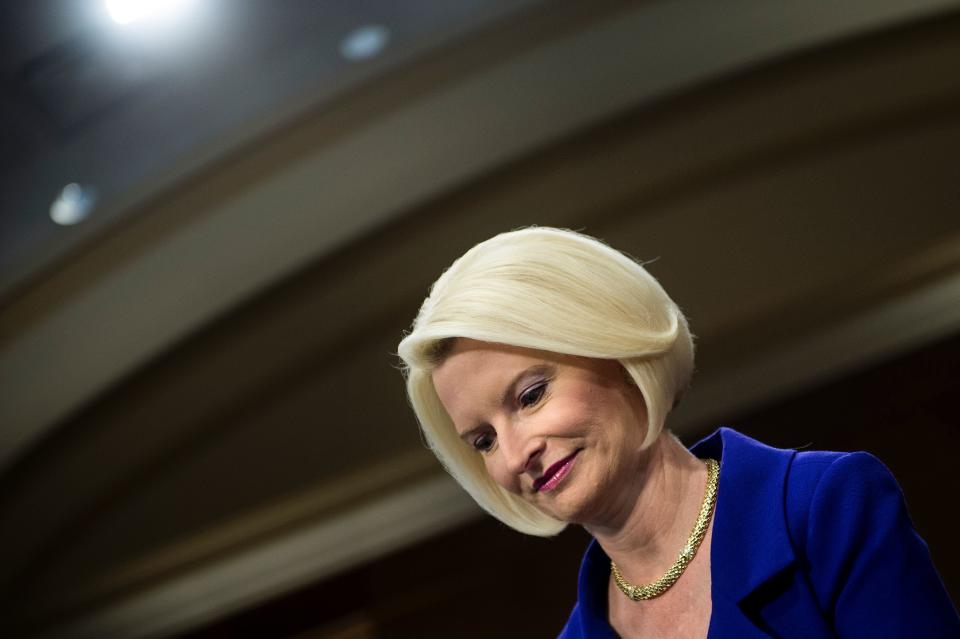
Speaking Up
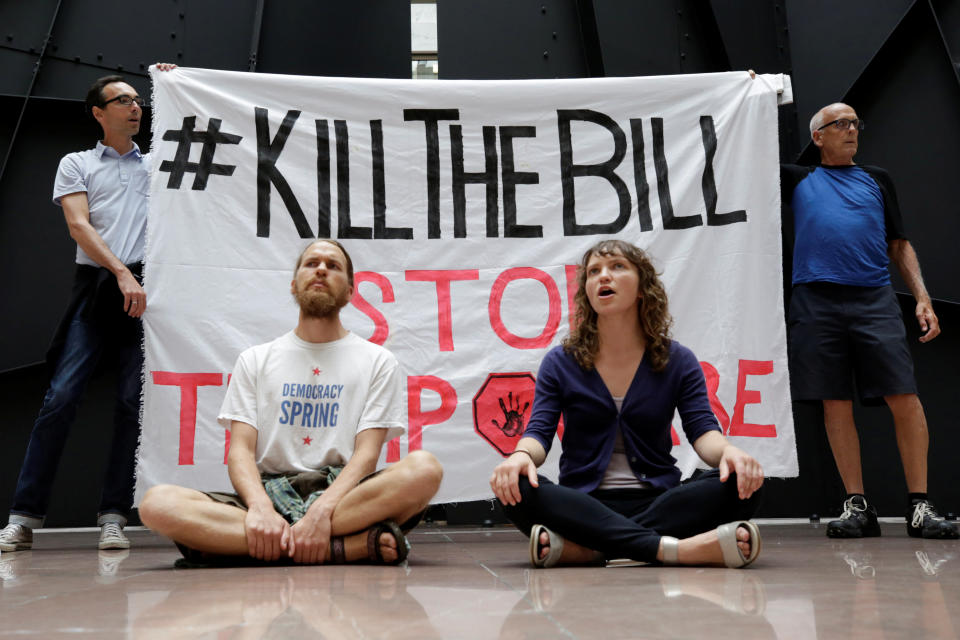
In The Fray

Anticipation
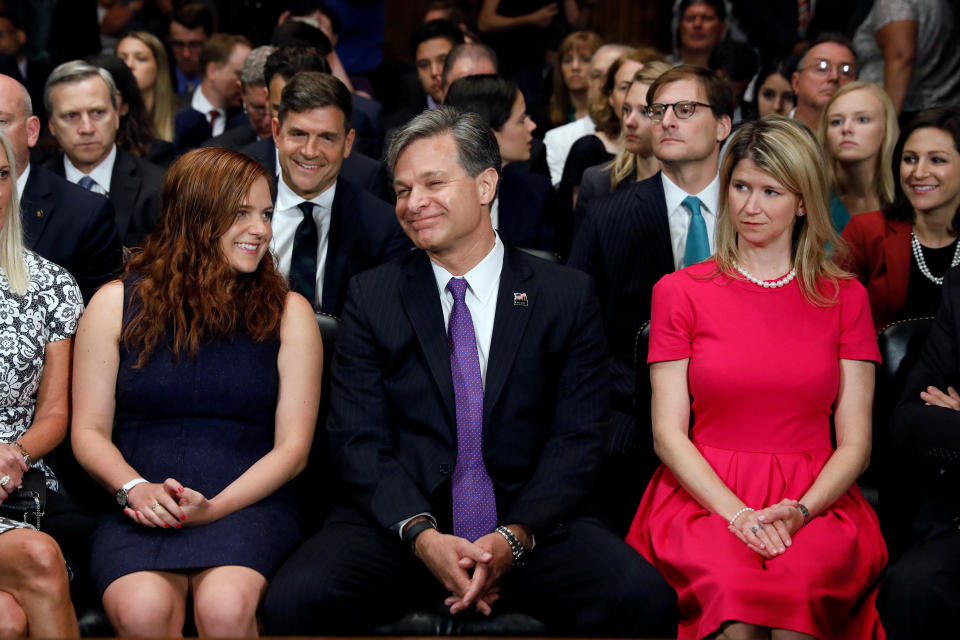
Up In Arms
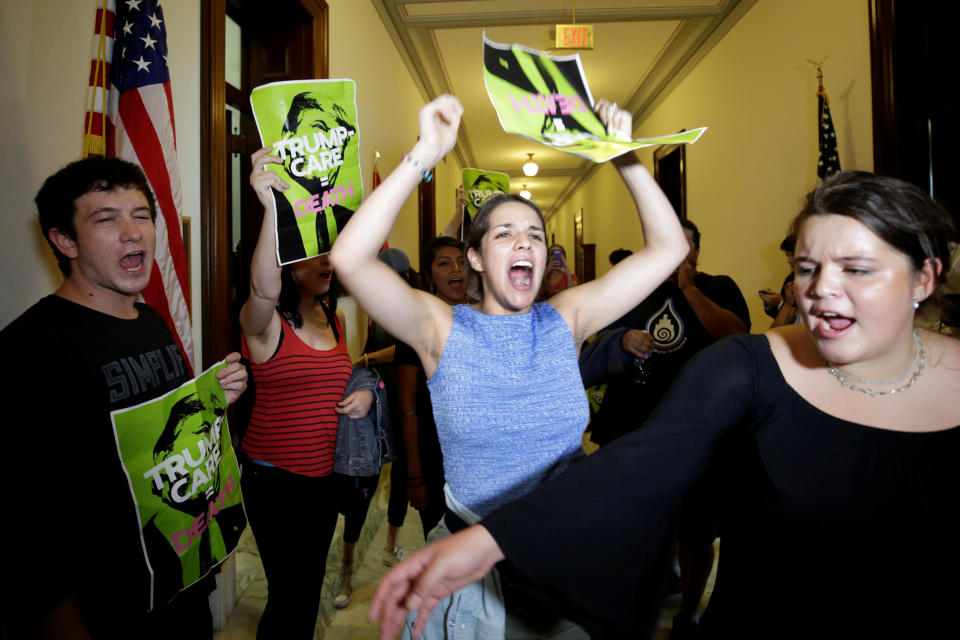
Across A Table
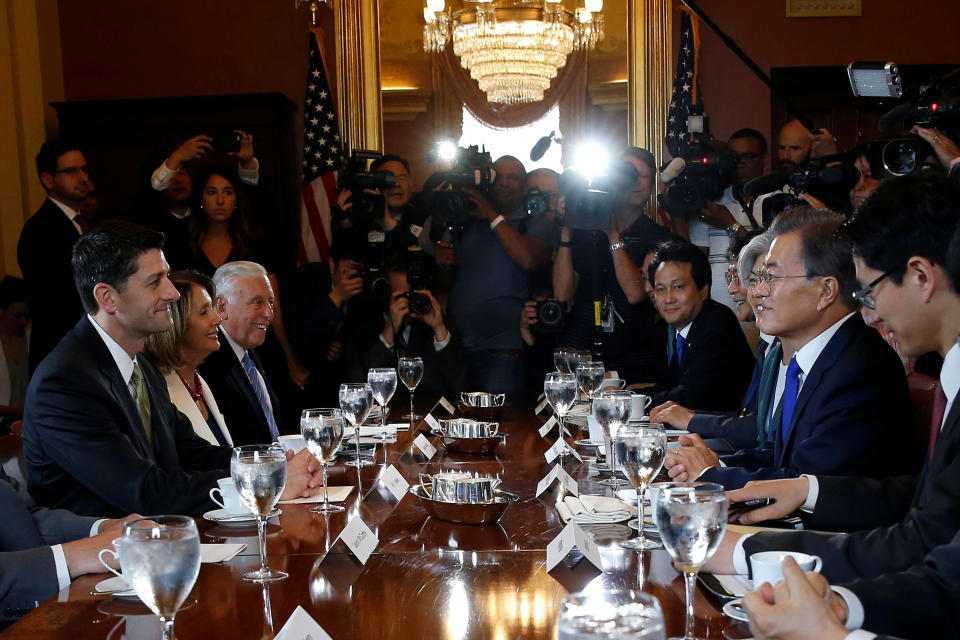
Somber Day
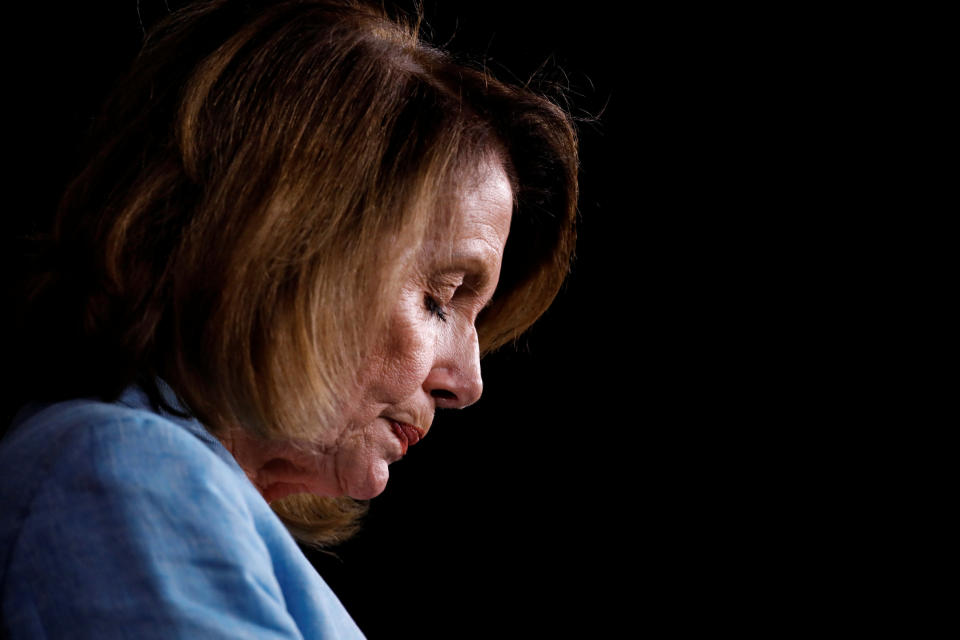
Family Matters

A Bipartisan Pause

Hats On
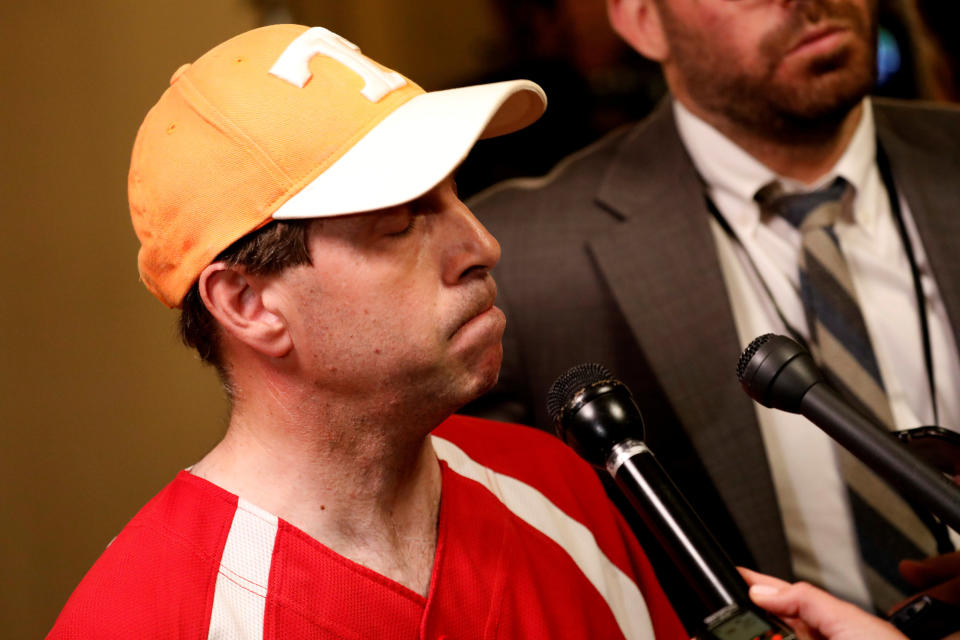
Public Testimony

Comey's Big Day
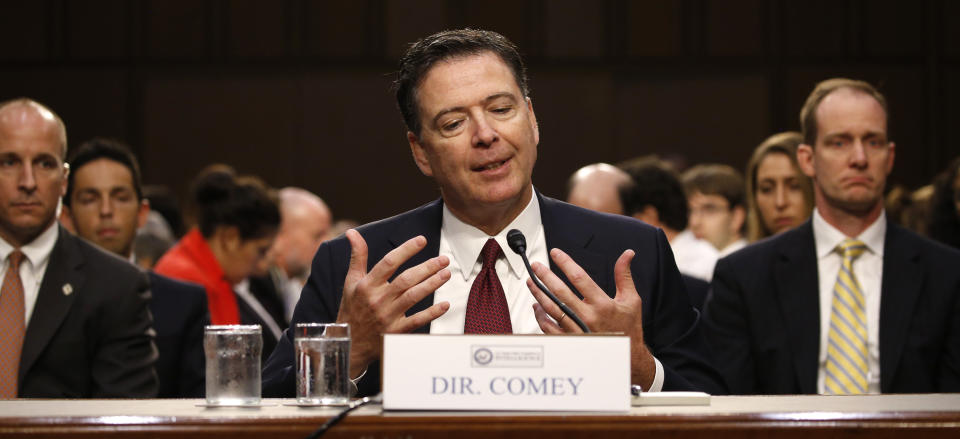
Conveying His Point
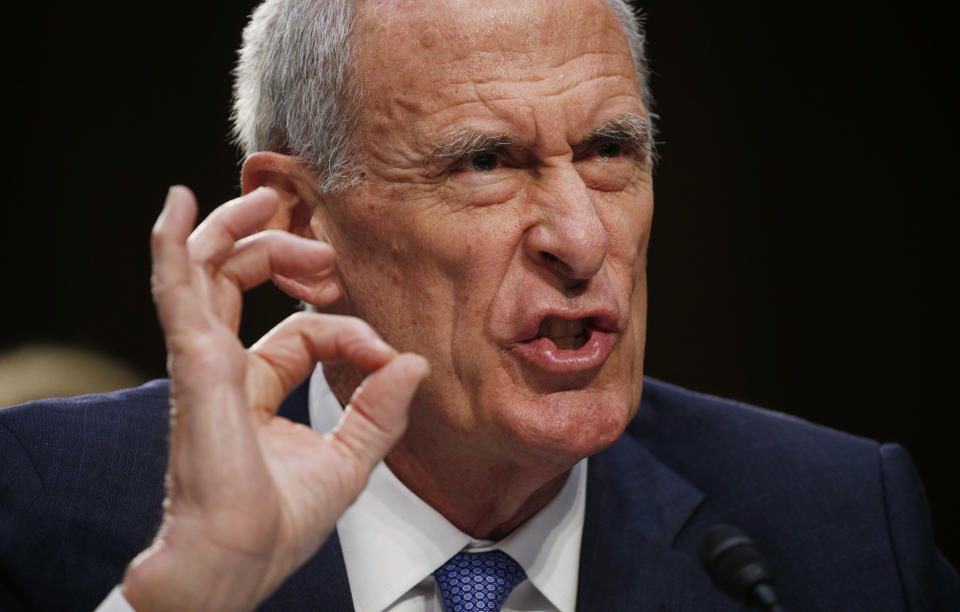
Selfie Time
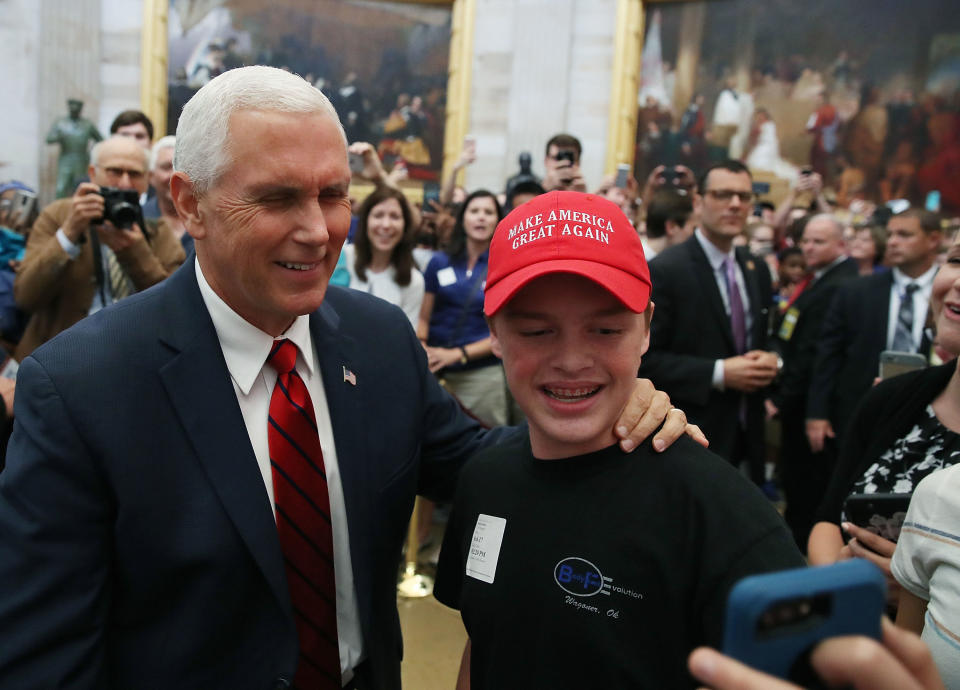
Budget Queries
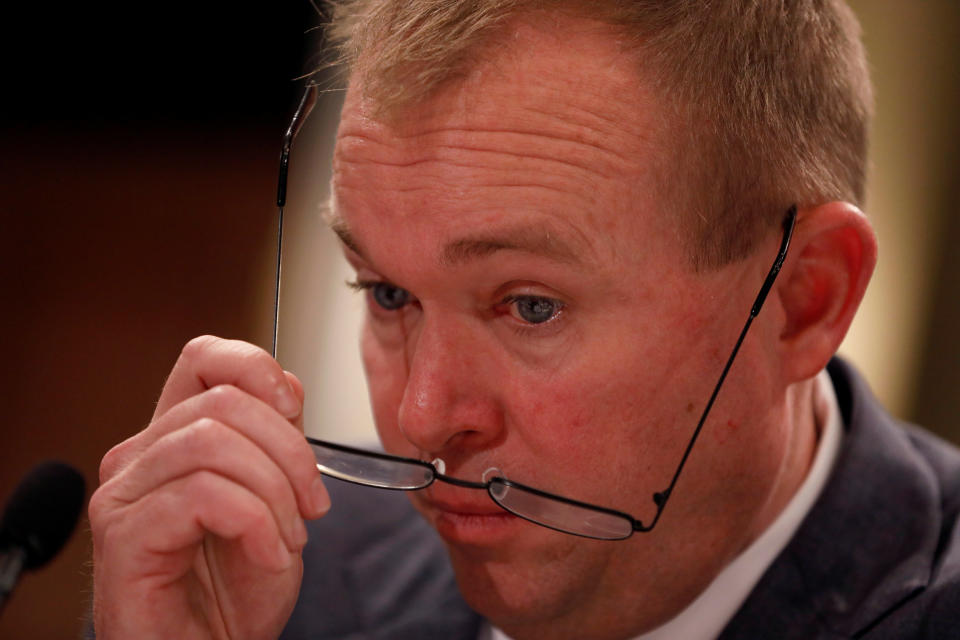
Flagged Down By Reporters
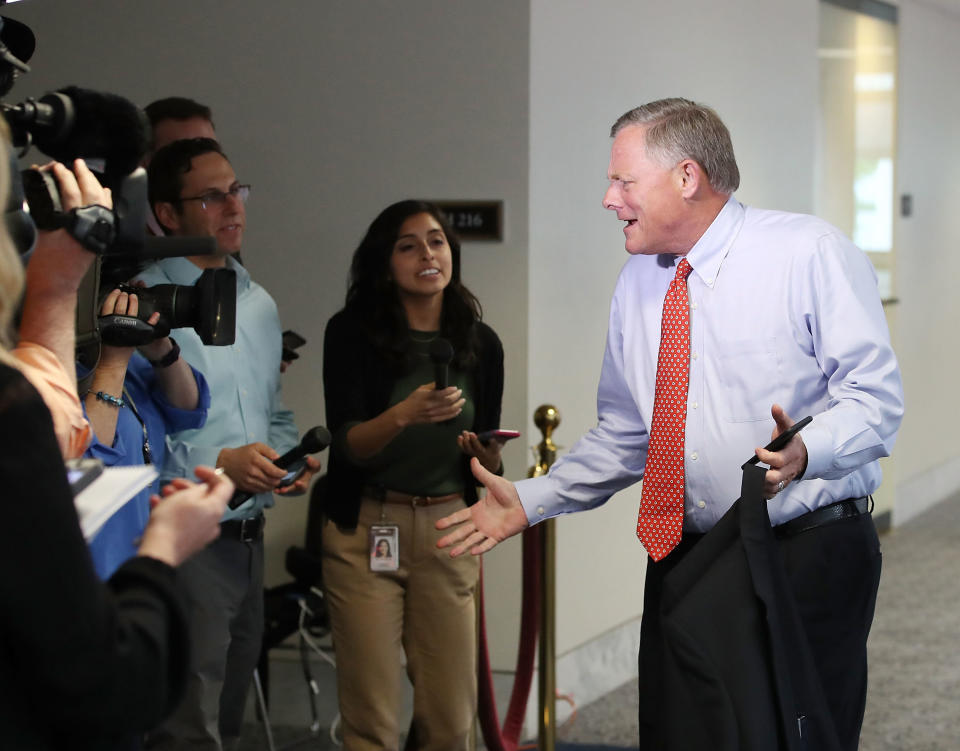
Shock And Awe
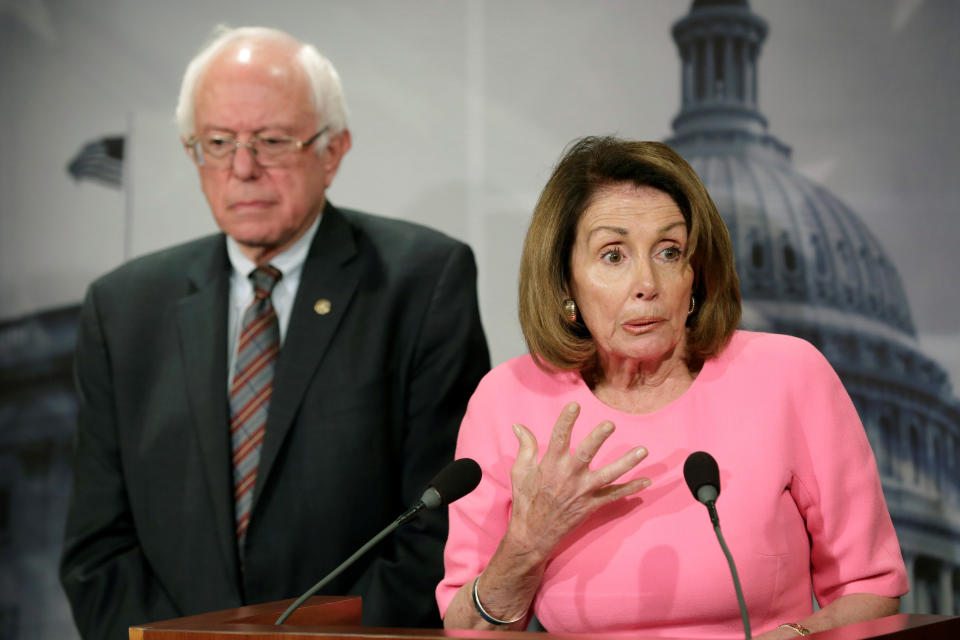
Seeing Double

Honoring Officers

Whispers

Skeptical
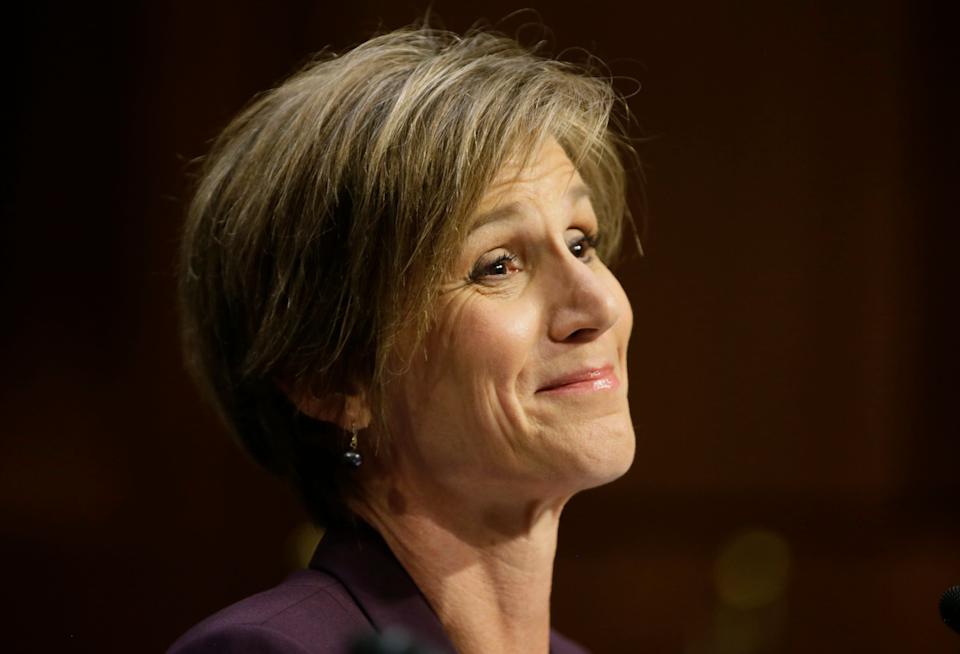
Differing Opinions
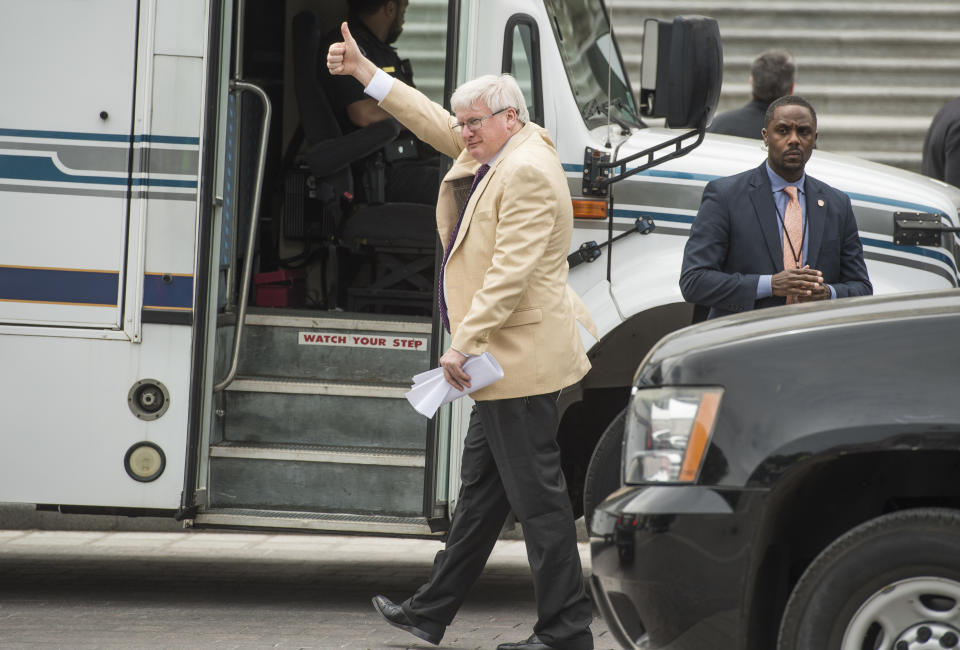
Real Talk
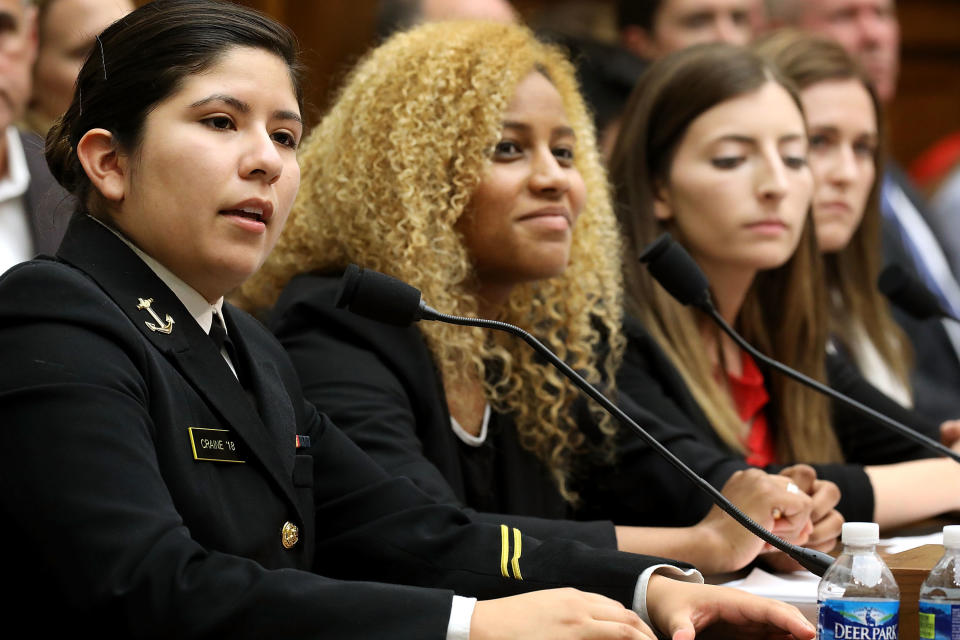
In Support Of Immigrants
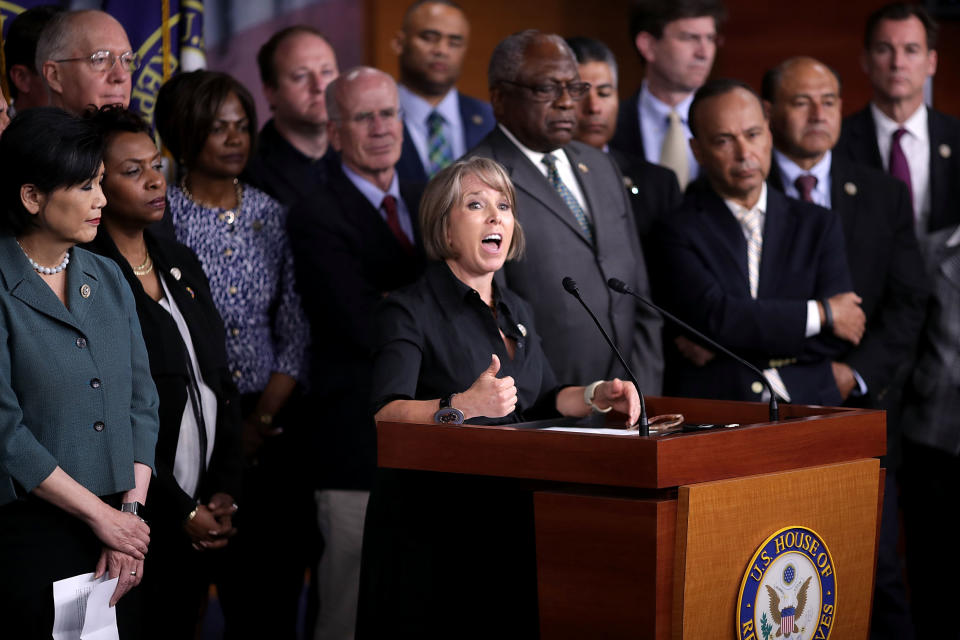
This article originally appeared on HuffPost.

